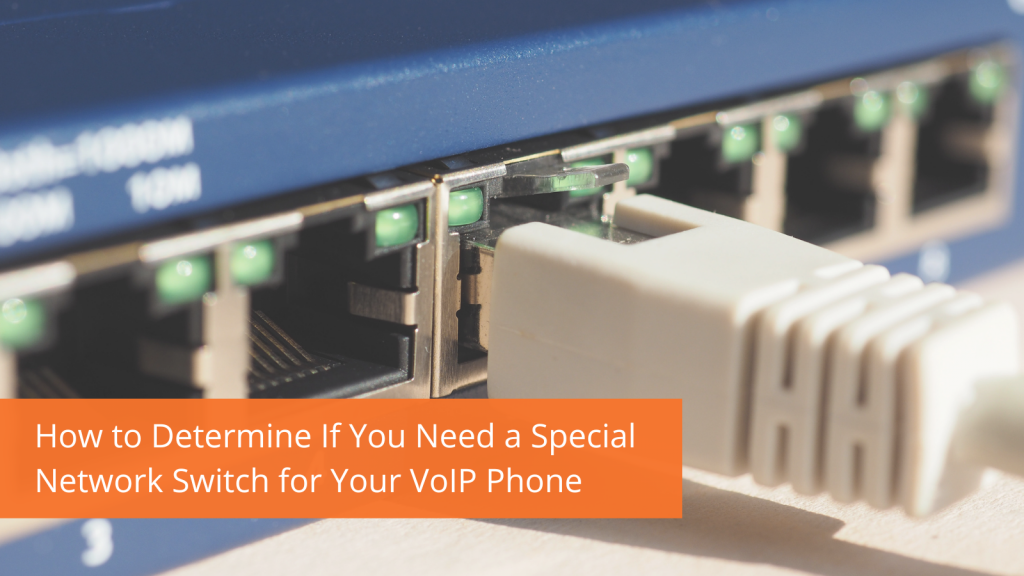How to Determine If You Need a Special Network Switch for Your VoIP Phone

It’s no secret that in the fast-paced world of modern business, communication is key. As companies continue to rely on Voice over Internet Protocol (VoIP) technology to streamline their communication processes, the need for a robust network infrastructure becomes more critical than ever. Central to this infrastructure is the network switch, which plays a pivotal role in ensuring the quality and reliability of your VoIP phone system. But how do you know if you need a special kind of network switch for your VoIP phones? In this blog post, we will explore the factors that determine whether your VoIP phone system requires a specialized network switch.
Assess Your Current Network Infrastructure: Before diving into the specifics of VoIP phone system requirements, it’s essential to evaluate your existing network infrastructure. Start by considering the following:
Network Traffic: Is your network handling a significant amount of data traffic, including voice, video, and data?
Network Age: How old is your current network equipment? Older switches may not support modern VoIP features.
Performance Issues: Are you experiencing call drops, jitter, or latency issues with your current setup?
Network Size: How many VoIP phones and other devices are connected to your network? More significant network sizes may demand a specialized switch.
VoIP-Specific Features: VoIP phones have specific requirements that set them apart from traditional analog phones. These requirements may include Power over Ethernet (PoE) capabilities, Quality of Service (QoS) support, and VLAN (Virtual LAN) capabilities.
Power over Ethernet (PoE): VoIP phones often require power to function, and PoE enables both data and power to be delivered over a single Ethernet cable. Check if your current switch supports PoE or if you need to upgrade to one that does.
Quality of Service (QoS): QoS helps prioritize VoIP traffic, ensuring that voice packets are given higher priority to maintain call quality. If your current switch lacks QoS support, it’s time to consider an upgrade.
VLAN Support: Segregating voice and data traffic into separate VLANs can enhance network performance and security. A switch with VLAN support may be necessary if you haven’t already implemented this feature.
Bandwidth Requirements: VoIP phone systems demand a stable and consistent network connection. High-quality voice calls require adequate bandwidth to ensure that voice packets are delivered without interruption. Consider whether your current switch can handle the required bandwidth for your VoIP phone system. If not, a specialized switch may be necessary to avoid call quality issues.
Scalability and Growth: Think about the future of your business. If you anticipate adding more VoIP phones to your network as your company grows, it’s crucial to choose a switch that can scale with your needs. Some specialized switches are designed to support a higher number of VoIP devices and offer flexibility in terms of expansion.
Consultation with a VoIP Professional: If you’re unsure about whether your network switch is suitable for your VoIP phone system, consider consulting with an IT professional or a VoIP specialist. They can assess your current setup, understand your business requirements, and recommend the most suitable switch for your needs.
In conclusion, a specialized network switch for your VoIP phone system may be necessary depending on your current infrastructure, VoIP-specific features, bandwidth requirements, scalability needs, and network performance issues. Investing in the right switch ensures that your VoIP communication remains reliable and of high quality, contributing to the overall efficiency of your business operations. If you have any questions or comments please feel free to leave them below, give us a call at 1-800-398-8647, or visit our website at www.voipsupply.com.